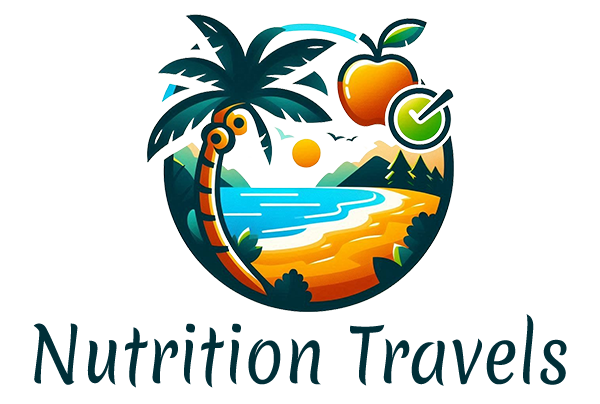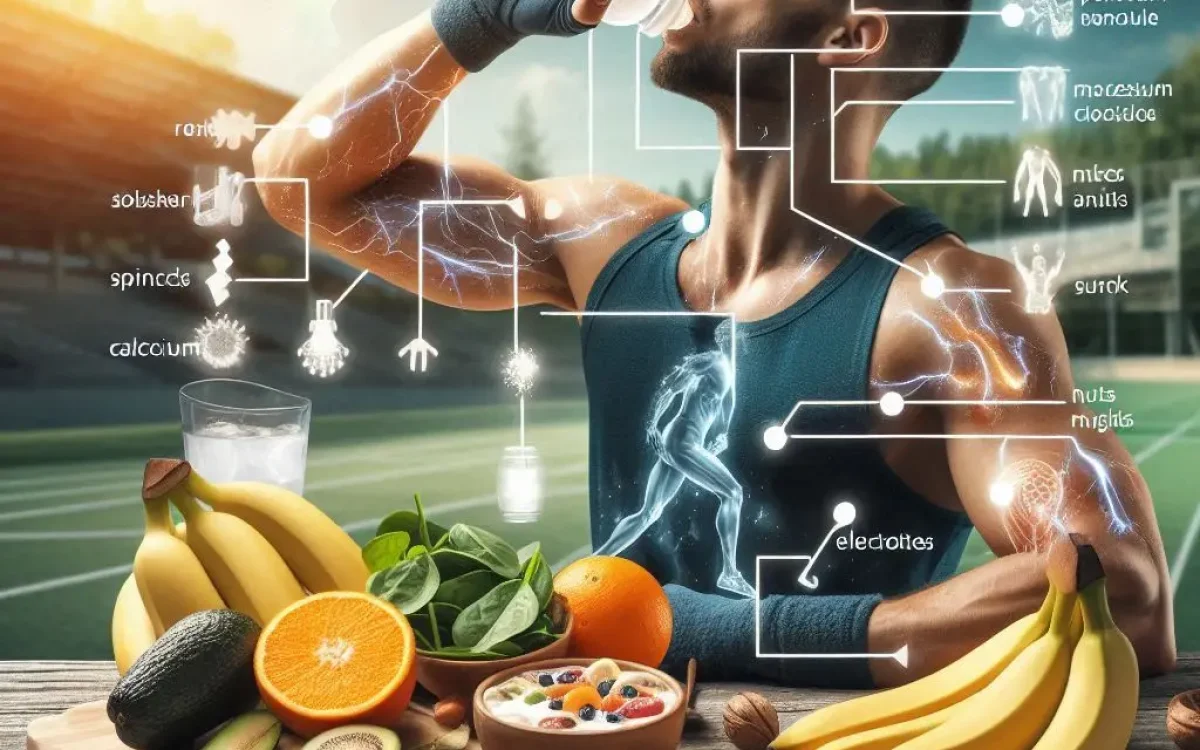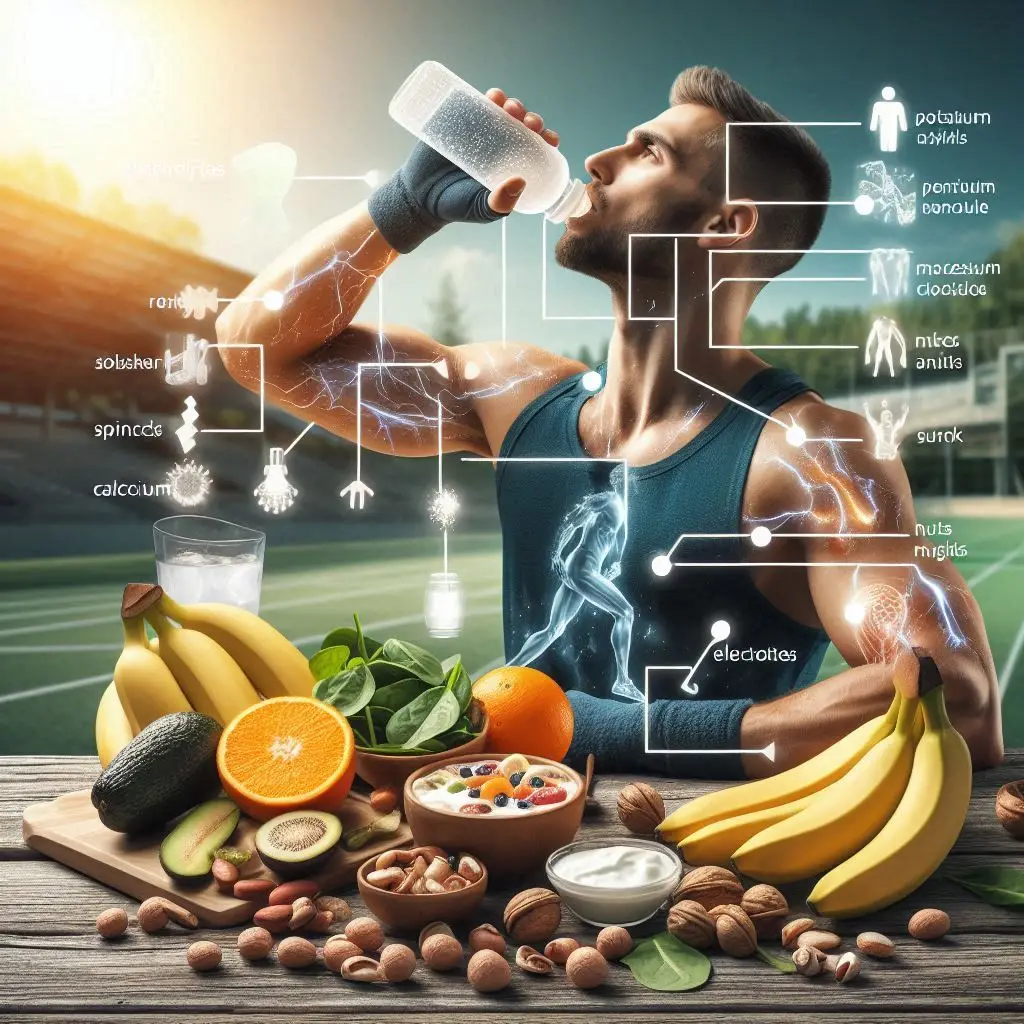When it comes to fitness and overall health, hydration is one of the most underrated aspects of performance. But hydration is not just about drinking water — it’s also about maintaining the right balance of electrolytes. Electrolytes are essential minerals that carry an electric charge and play a key role in regulating fluid balance, muscle contractions, nerve signaling, and overall energy levels. Without them, your body simply can’t perform at its best.
Whether you’re hitting the gym, training for a marathon, or simply spending a hot day outdoors, electrolytes are critical to how your body functions and recovers. In this article, we’ll explore what electrolytes are, why they matter during exercise, the best ways to replenish them, and how to choose between natural food sources and supplements.
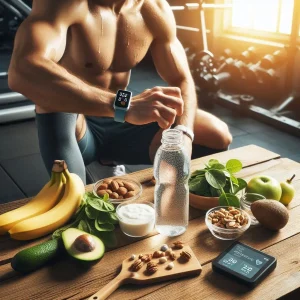
What Are Electrolytes and Why Are They Important?
Electrolytes are minerals such as sodium, potassium, magnesium, calcium, and chloride. They carry an electric charge that allows them to support several vital functions:
- Maintaining fluid balance by regulating the amount of water inside and outside cells.
- Supporting muscle contractions so that your body can move without cramps or weakness.
- Aiding nerve function by transmitting signals that control muscle movement and reflexes.
- Balancing pH levels in the blood to keep chemical reactions functioning properly.
According to the National Institutes of Health (NIH), adequate electrolyte intake is essential, especially in situations that involve heavy sweating — such as intense exercise or heat exposure. Even mild dehydration or imbalance can cause fatigue, dizziness, muscle cramps, or headaches.
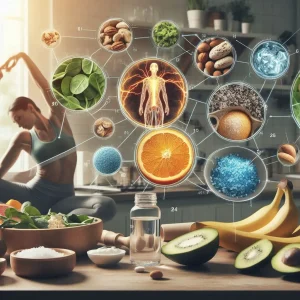
How the Body Loses Electrolytes During Exercise
When you exercise, your body regulates temperature through sweating. Sweat contains water as well as electrolytes, primarily sodium and potassium. The more intense the workout or the hotter the climate, the more electrolytes you lose.
This loss can impact performance in several ways:
- Muscle cramps and weakness due to disrupted electrical signals.
- Fatigue and low energy, as the body struggles to maintain balance.
- Dehydration, which affects endurance and recovery.
- Dizziness or irregular heartbeat in severe cases.
This is why athletes and active individuals often turn to electrolyte-rich drinks, foods, or supplements to restore balance.
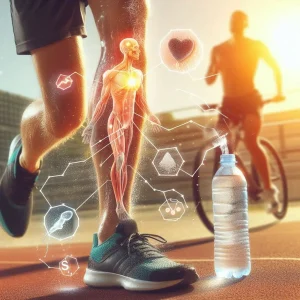
Types of Electrolyte Supplements
Electrolyte supplements come in many forms, each with unique benefits. Choosing the right one depends on your lifestyle, preferences, and fitness goals.
- Powders: Mixable with water, available in many flavors, and customizable for dosage. Ideal for post-workout hydration.
- Capsules: Compact, precise dosing, and flavor-free. Perfect for endurance athletes or those on low-carb diets.
- Chewable tablets: Convenient and fast-acting, useful during workouts.
- Effervescent tablets: Dissolve in water to create a fizzy drink. Great for hydration with taste.
- Gummies: Tasty and easy to carry, though lower in mineral content per serving.
Each format can be effective, but for long workouts or endurance events, powders and capsules are often the most reliable options.

Natural Sources of Electrolytes
While supplements are convenient, you don’t always need them. Many whole foods provide electrolytes naturally:
- Bananas: A rich source of potassium for muscle function.
- Spinach and leafy greens: Packed with magnesium and calcium.
- Avocados: High in potassium and magnesium.
- Nuts and seeds: Contain a mix of magnesium, potassium, and calcium.
- Yogurt: A good source of calcium and potassium.
- Coconut water: A natural, hydrating drink rich in potassium.
Including these foods in your diet helps maintain electrolyte balance on a daily basis without relying entirely on supplements.

Electrolytes vs. Regular Water
You might wonder whether plain water is enough to stay hydrated. For most short workouts under 60 minutes, water alone is usually sufficient. However, during longer or high-intensity activities — or when exercising in hot climates — electrolyte water offers significant advantages. It not only restores fluid but also replenishes the minerals lost through sweat, helping you avoid cramps, fatigue, and dehydration.

Risks of Too Many Electrolytes
Although essential, electrolytes should be consumed in balance. Overconsumption can cause problems:
- Excess sodium may raise blood pressure and cause water retention.
- Excess potassium can lead to irregular heart rhythms and muscle weakness.
- Overhydration with electrolyte water may cause nausea, dizziness, or confusion.
Moderation is key. If you eat a balanced diet and exercise moderately, you probably don’t need large amounts of supplementation.

Sports Drinks vs. Energy Drinks
It’s important not to confuse sports drinks with energy drinks. Sports drinks are designed to replace fluids and electrolytes, and sometimes provide carbohydrates for long workouts. Energy drinks, on the other hand, usually contain high amounts of caffeine and sugar, which may lead to dehydration rather than proper hydration. Choose wisely depending on your needs.
Practical Hydration Tips for Exercise
To optimize hydration and electrolyte balance:
- Before exercise: Drink 2–3 cups of water about 2–3 hours before your workout.
- During exercise: Drink small amounts (about half to one cup) every 15–20 minutes, adjusting for sweat levels and climate.
- After exercise: Drink 2–3 cups of water for every half kilogram (1 lb) of body weight lost during training.
For workouts longer than 60 minutes, consider adding an electrolyte drink or supplement.
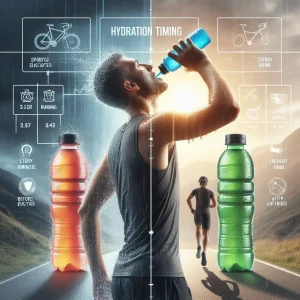
Optimize Your Performance with Electrolytes
Electrolytes are an essential part of healthy performance, hydration, and recovery. From supporting muscle contractions and nerve signaling to maintaining proper fluid balance, these charged minerals are the foundation of physical endurance and overall well-being. While natural foods should always remain the priority source of electrolytes, supplements and sports drinks can play a supportive role when your body needs an extra boost — especially during long workouts, hot weather, or recovery from illness.
Finding the right balance between natural nutrition and supplementation is key. Don’t rely solely on products, but also don’t overlook their benefits when used wisely. Always listen to your body and seek professional advice if needed.
Ready to take your fitness and hydration to the next level? Explore more expert health and wellness guides at Nutrition Travels and discover how small changes can make a big difference in your performance and energy every day.
